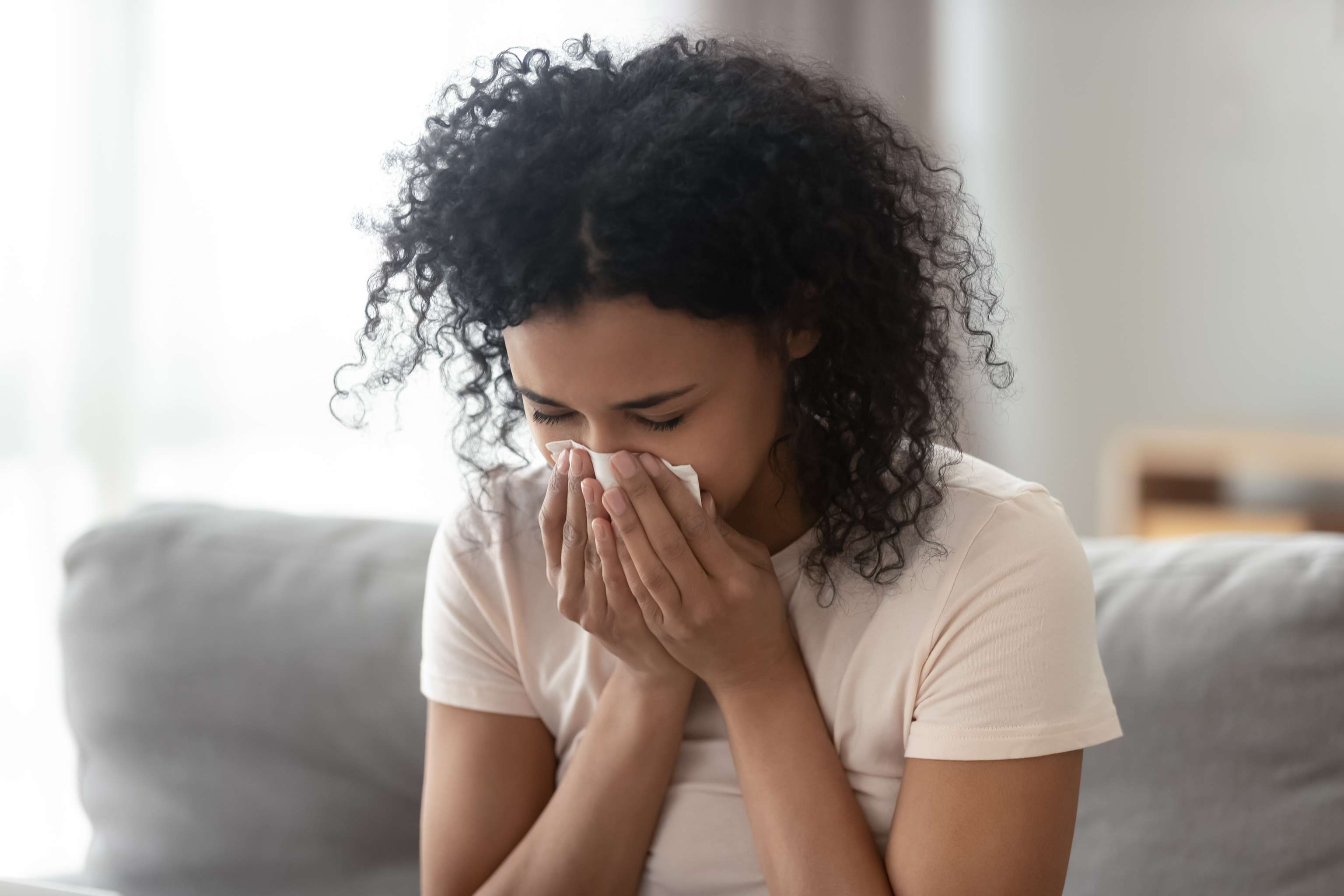Allergic reactions affected by conditioning even without allergen

Allergy defined:
In the German-speaking world, almost 20% of the population suffers from at least one allergy, with women being affected more frequently than men.
Allergic reactions are inappropriate responses of the immune system upon contact with a generally harmless, foreign substance. Ideally, the immune system is adaptive and recognizes which foreign substances are harmful and which are not. In the case of an allergy, however, this differentiation no longer functions effectively, whereby the harmless foreign substance is not ignored, but rather defenses of the immune system are activated. Possible consequences of this immune reaction would be: swollen mucous membranes, itching, shortness of breath or even a circulatory collapse - without the allergens (i.e. triggering substances) causing any direct damage themselves.
Medicinal treatment can suppress the immune system or inhibit the release of pro-inflammatory substances, thereby alleviating the allergic symptoms. While these act on the whole human body in the form of tablets or injections, asthma sprays, nasal sprays or eye drops can be targeted at specific areas of the body.
It is well known that immune responses, including allergic reactions, are subject to what is known as Pavlovian conditioning. After learning a link between an immunoreactive agent, such as an allergen, and an immunologically neutral stimulus, such as a distinct odor, that neutral element alone can trigger the immune response.
The Allergy Study:
Scientists from the Institute of Medical Psychology and Behavioral Neurobiology at the University of Tübingen, Germany, investigated this exact explanation in the journal Proceedings of the National Academy of Sciences. For this study, published in May 2020, the research team controlled subjects with allergy-related rhinitis. Participants were selected through various advertisements via university email distribution lists. Prior to enrollment in the study, candidates were screened for clinically relevant sensitization to birch and/or grass pollen through various tests such as a skin swab test or nasal provocation test. Ultimately, 30 subjects were enrolled in the study, with an average age of 25 years. The randomized, double-blind cross-over study (i.e., crossover study) was conducted during pollen-free periods from 2014 to 2018.
On the day of the study, participants arrived at the laboratory at 7:30 pm. This involved confronting them in a neutral experimental room with the respective allergens such as grass or birch pollen by administering a nasal spray. Towards the end of a 45-minute phase, during which the study participants remained in the room and were able to adapt to the environment, allergic reactions were assessed for the first time. The amount of a specific enzyme in human nasal secretions was used to measure the severity of the allergic reaction occurring in each subject. While half of the study participants had to stay awake until the following evening, the other half went to sleep for eight hours after this test. One week later, they repeated the experiment in the same experimental room without administering allergens.
Clear results:
According to study reports, the participants reacted with allergic rhinitis shortly after entering the room - However, only the group that had to sleep for eight hours. The test participants in the group without sleep showed no allergic reaction to returning to the test room. Nor did entering a different location to which the participants in the group with sleep were taken during the second week of the study show a similar effect.
The study results provide possible evidence that allergy-related responses could also be conditioned to environmental information (e.g., location of the room) after only one conditioning procedure in a single series of trials, with sleep being necessary to consolidate this response. This mechanism provides a possible basis for understanding the strong psychological effects on allergic responses.
Conclusion:
In summary, the study results show data to establish the principle that allergic responses may be conditioned to the mere context (such as a room) of a conditioning procedure and that these responses are dependent on sleep. These results may have important implications for understanding the commonly observed "placebo" allergic responses that may occur in the absence of allergens.
Sources
- Luciana Besedovsky, Mona Benischke, Jörg Fischer, Amir S. Yazdi, Jan Born. Human sleep consolidates allergic responses conditioned to the environmental context of an allergen exposure. Proceedings of the National Academy of Sciences. May 2020. 117 (20) 10983-10988; DOI: 10.1073/pnas.1920564117
- Allergiemedikamente (Netdoktor)
- Allergische Reaktionen wegen Konditionierung auch ohne Allergen möglich (Ärzteblatt)

Danilo Glisic
Last updated on 05.04.2021
Your personal medication assistant
Browse our extensive database of medications from A-Z, including effects, side effects, and dosage.
All active ingredients with their effects, applications, and side effects, as well as the medications they are contained in.
Symptoms, causes, and treatments for common diseases and injuries.
The presented content does not replace the original package insert of the medication, especially regarding the dosage and effects of individual products. We cannot assume liability for the accuracy of the data, as the data has been partially converted automatically. Always consult a doctor for diagnoses and other health-related questions.
© medikamio